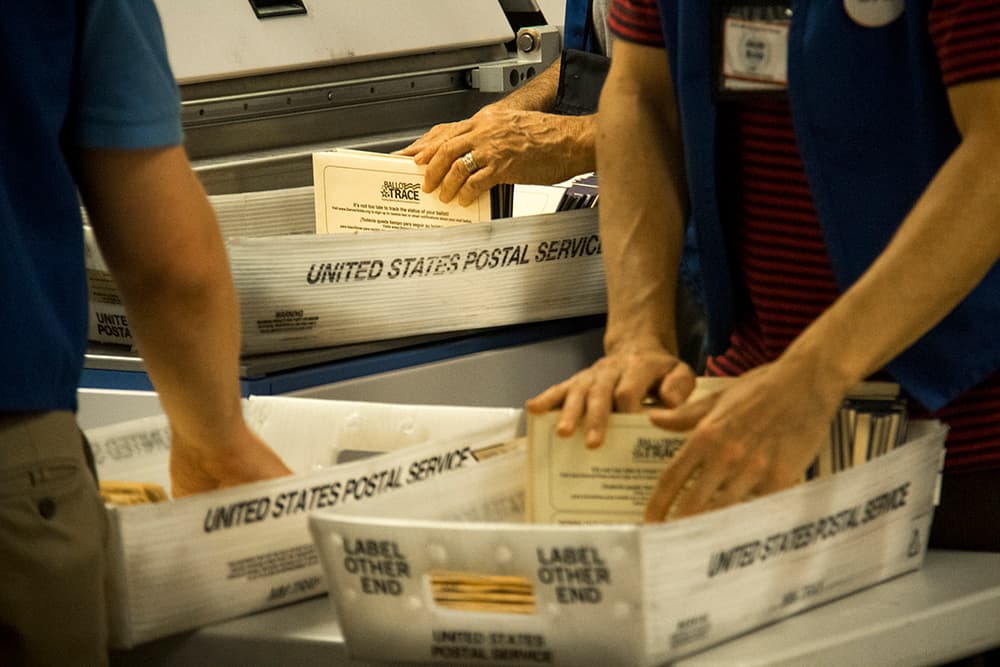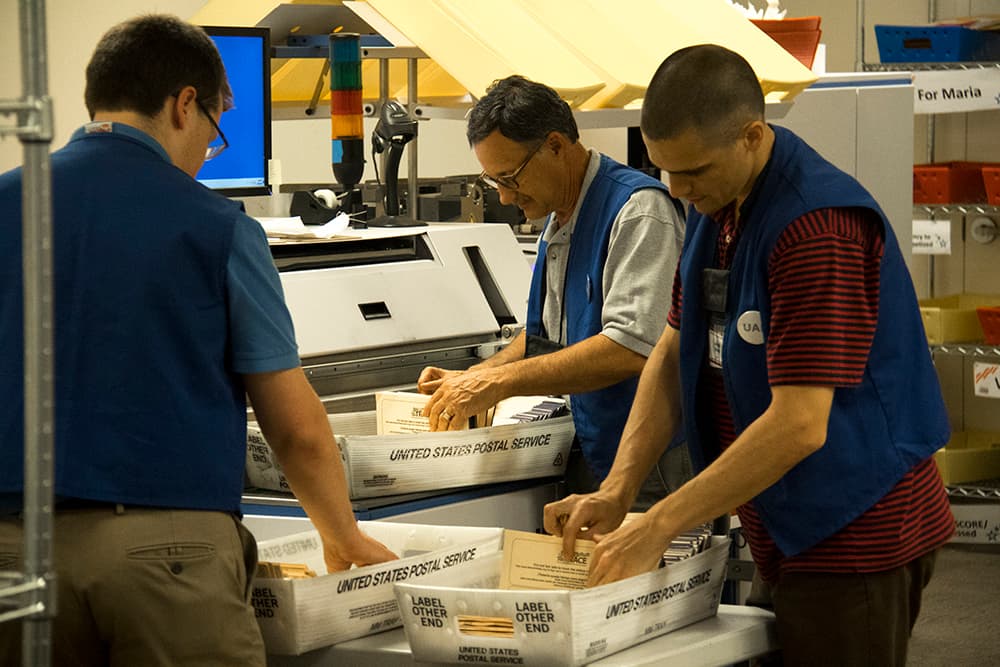
A federal judge on Monday put up a high barrier to two Colorado electors who want to not vote for Hillary Clinton as part of a long-shot plan to stop Donald Trump from becoming president.
Polly Baca, a former state senator, and Robert Nemanich, a math teacher, had sued the state of Colorado to block enforcement of a state law that requires them to vote for the winner of the popular vote here, but U.S. District Court Judge Wiley Daniel did not think that their arguments met the "extraordinary" standard necessary for a preliminary injunction.
From the start of the hearing, Daniel asked pointed questions of Jason Wesoky, the attorney for the electors, about whether electors have the same rights as ordinary voters, who cannot be intimidated or coerced in their choices, and whether their actions were not merely ministerial.
At one point, he asked Wesoky if the electors would be suing if Clinton had won. "Part of me thinks this is really a political stunt," he said.
Daniel, who was appointed to the federal bench by Bill Clinton, cited case law recognizing the right of states to place conditions on electors, and stressed that electors voluntarily agreed to vote for the person who won the most votes in the state when they sought to be electors.
Wesoky said he'll still move forward despite his injunction being denied, though it's not entirely clear what that looks like. Wesoky said he has not made a decision yet about whether to file an emergency appeal with the 10th Circuit Court of Appeals.
A hearing is scheduled Tuesday in state court to determine whether and how Colorado Secretary of State Wayne Williams might replace the electors who have stated their intention to not comply. The Secretary of State's Office has pointed out that it's a misdemeanor for a public officer to violate the election code, though it's not clear if any of the electors will be charged if they in fact get a chance to cast their non-conforming votes.
The electors will cast their votes on Monday, Dec. 19, in the governor's office. Wesoky said his clients do not intend to vote for Clinton at this time, though they do feel "coerced and compelled" by state statute.
"Their intent is to do their constitutional duty, and their constitutional duty as outlined very explicitly by Alexander Hamilton, though disagreed with by this court, is to exercise their free will," he said. "It is not to make a political statement. It is not to change history. It is simply what they were elected by the voters of this state to do."
Another Colorado elector, Micheal Baca, who was not a plaintiff in the case, said after the hearing that he still intends to vote for someone other than Clinton. Baca is also one of a number of electors asking that they receive an intelligence briefing on foreign interference in the election, as reported by Politico.
What they were trying to do:
This is an effort that even its proponents admit is a Hail Mary. (Wesoky joked that if the Clinton campaign and the Democratic National Committee were behind the effort, someone else would be the attorney.)
The plan is to see if laws in other states -- particularly ones where Trump won and the electors are Republicans bound to him -- might be overturned. The Democratic electors are basically offering to vote for an alternative Republican, hoping that will convince enough Republicans to peel away from Trump. "Enough" would be at least 37.
If they manage to drive support for Trump below 270 electoral votes then the election would go to the U.S. House of Representatives.
So far, there are nine Democratic and one Republican faithless -- or "Hamilton" -- electors who have been open about their desire to use this old-school method of choosing a president to block Trump.
Wesoky said electors around the country are talking to each other, and he believes there are more Republican electors who want to vote for someone other than Trump. However, he said he doesn't know of any names nor has he had any confirmation this is the case.
This broader plan seemed to weigh on Daniel over the course of the hearing.
"The court does not just read the law," he said. "The court might also read some things on the internet."
Wesoky argued that much of the case law cited by Daniel and by attorneys for the state of Colorado and the Republican Party doesn't speak directly to the issue of whether electors can be required by state law to vote for a certain person for president. He said the state has no real interest in binding electors to a pledge that comes from a political party.
The electoral college has been kept around for a reason, he said, and the state can no more bind the electors than it can require a senator to cast a party line vote.
"If this court were to rule that my clients are merely performing a ministerial task, the court would be amending the constitution," he said.
To that, Daniel responded, "I don't want to hear that. I'm not amending the constitution. ... You're asking me to disregard a lot of case law."
Colorado Assistant Solicitor General Grant Sullivan argued on behalf of Colorado Secretary of State Wayne Williams that even as Wesoky cited the Federalist Papers and the intent of the founders, he ignored the historic tradition of the electoral college abiding by the popular vote in the states going back to the early 19th century.
He also said it's fundamentally undemocratic for the electors to substitute their judgment for that of the voters.
"This case is about protecting the right of millions of Coloradans to cast a meaningful vote," he said.
Christopher Murray, who represents the Republican Party and the Trump campaign in the case, said the argument made by Wesoky that the electors aren't intended to represent the people of Colorado and their votes because they don't represent Republicans or third-party voters was "chilling" in its implications.
"We have elections to determine things like, 'Who does the state of Colorado support for president?'" he said. "Part of the reason we have peaceful transitions of power is that we all agree that if you win the majority of votes, you represent all the people."
That argument hints at just one of the ironies in this case. Trump lost the popular vote nationally, though he won in the right states to win the electoral college. The case also saw Democrats arguing for elevating the original intent of the founders, a constitutional view that is much more popular with conservatives.
Wesoky said after the hearing that we ignore the prescience of the founders at our peril. The constitution does not require electors to vote in a way that reflects the popular vote.
"Just because we haven't pulled the emergency brake up to this point does not mean it should not be pulled," he said.














